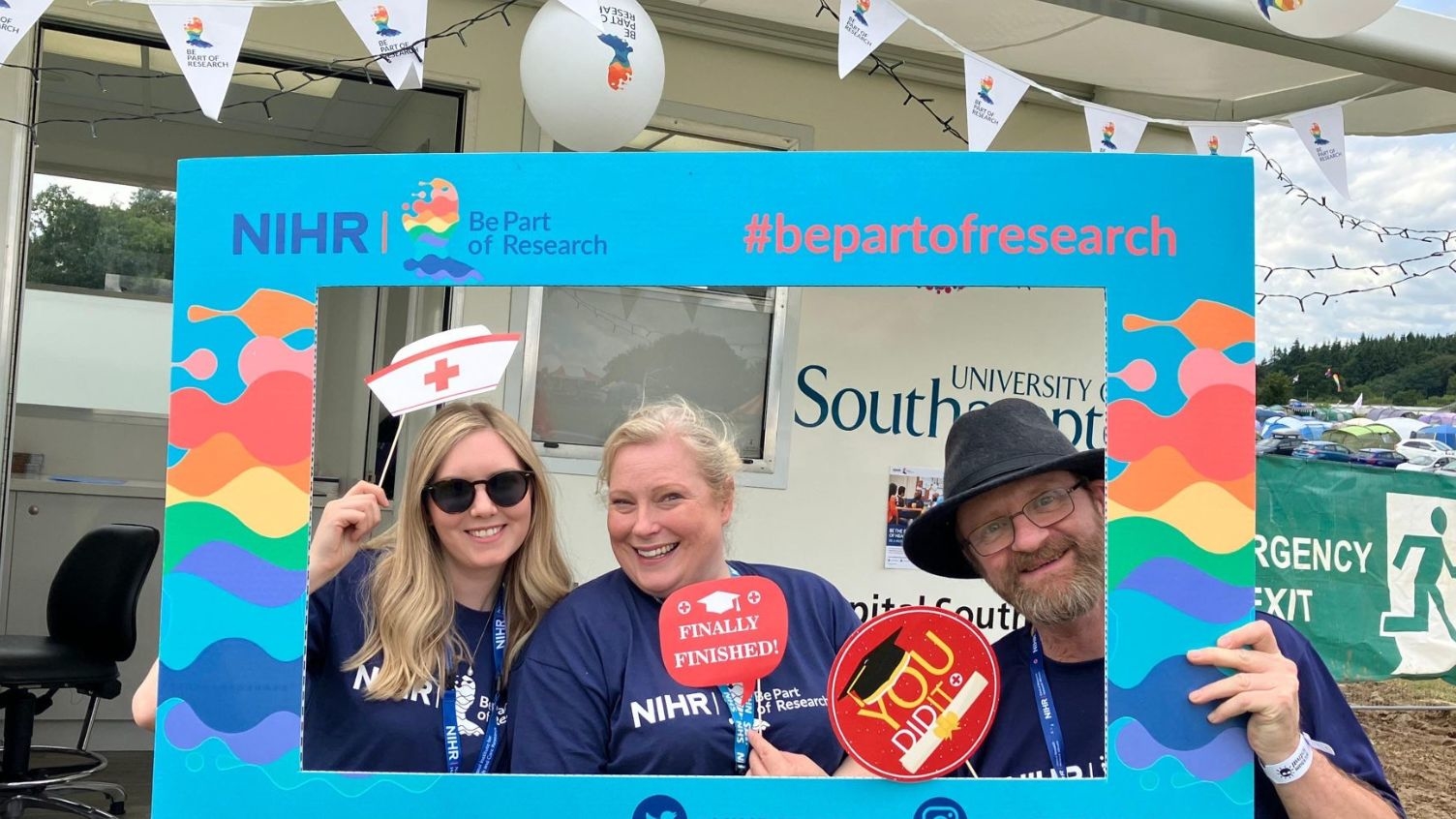AHP in research campaign - “Research allows you to look at things in a whole different way that we don't get a chance to do in our day-to-day patient-facing roles.”
- 13 November 2023
- 4 min read
Mika Dave is a Consultant Podiatrist at East Sussex Healthcare NHS Trust and has acted as a Principal Investigator on trials.
In the latest of our series speaking to AHPs in research, Mika talks to CRN Kent, Surrey and Sussex about the research work she has been involved in.
How did you first get involved in research?
My first experience of research was conducting a service evaluation looking at the diabetic foot multidisciplinary meeting (MDM). I did this as part of my Masters which was in the theory of podiatric surgery at the University of Huddersfield. We were given the choice to do either a literature review or a service evaluation, and conducting a service evaluation seemed more useful in terms of the service that I work in.
I looked at a three month period pre-MDM and then a three month period post-MDM and collated all the patient data manually because there was no other way to do it. I compared their HbA1c, vascular status, whether they'd had any revascularization, the initial date of ulcer, and date healed and worked out the time to healing, and checked whether they were deceased or not. I also checked whether they were hospitalised during that time and then I ran it through a quantitative computer programme to process the data to see if it was statistically significant. Statistics I reviewed were the level of amputation and whether they were admitted to hospital or not, for their foot problem as well as time to healing. There was not enough data to run quantitative tests on two of these parameters, but I found that the MDM had reduced the patient's time to healing by more than half.
The first study I was a Principal Investigator (PI) on was the MIDFUT study (Multiple Interventions of Diabetic Foot Ulcer Treatment Trial). I'm the lead for the diabetic foot service and I was the only podiatrist who worked on the project. There were a lot of steps to enrol participants, and follow-up appointments had to happen within a certain time frame. This was challenging and in the end, we were only able to enrol one patient in the study, however, it proved to be an invaluable learning experience for me.
I'm currently PI for the MyDress study at the Trust. The trial is looking at whether different dressings are more likely to encourage certain types of bacteria to grow on them, so it might inform better dressing choices in the future. I facilitate this particular study and I make sure that the staff from the University of Brighton can come to our hospital and procure used dressings from patients to analyse and sign consent forms for patients. I was involved in the preliminary discussions around whether it was feasible for us to undertake it or not due to my role within the service.
What has been the highlight of your research career so far?
My highlight so far was obtaining my Masters degree. I've been a podiatrist for 18 years and I'm now looking to expand into the surgery field, which will be exciting. Surgery is usually something that many newly qualified podiatrists look at doing straight away, but now is the right time for me.
What skills do you think are needed for a career in research?
You need good communication skills, to be good at planning your time, and then stick to what you said you would do. You need to be good at sharing the workload so you are not taking on all the tasks yourself.
Why do you believe research is important?
Research is important to improving the quality of care we can provide and it also increases knowledge so that other people can benefit from it as well. Published research is useful to provide evidence and back up your case for a particular treatment route or service development. So the more people publish, the more the evidence will trickle down to everyday practice. Research allows you to look at things in a whole different way that we don't get a chance to do in our day-to-day patient-facing roles.
What are your plans and ambitions for the future?
I think it would be interesting to look at something around adverse childhood events and then the incidents of diabetic foot ulceration because I have a feeling it's been mooted that the two are interlinked. It would also be interesting to review how patients take on the advice we give them because if you look at a lot of research, it shows that diabetic foot patients aren't the best at retaining the information we give them or maybe they're not retaining the information. It would be interesting to look at why that is and whether there is something we can change.


